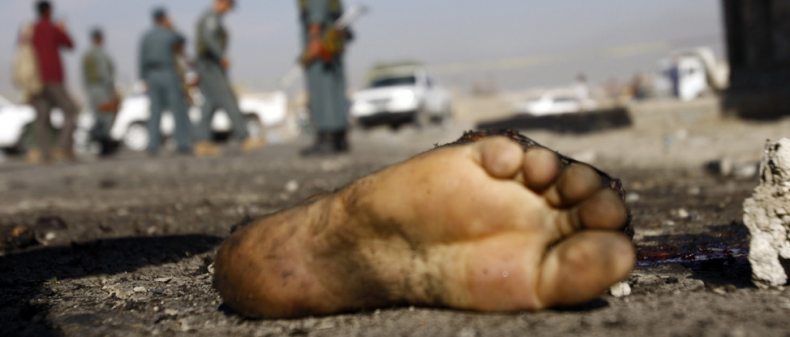
image: bagnewsnotes.com
Modern suicide terrorism first appeared in the 1980s and has expanded in its use and intensity ever since. As the favoured strategy by most terrorist organizations, it’s important to understand the rationality behind this tactic to develop an effective strategy that can be applied by counter-terrorism officials to help thwart, reduce and ultimately defeat the use of suicide terrorism.
It must first be understood that the root causes of suicide bombings are embedded in their success at spreading fear and anxiety amongst a population and their ability to successfully coerce political concessions from states (especially democratic ones). Due to its success rate, it’s important to understand that the strategy of suicide attacks is a rational conclusion resulting from a terrorist organization’s cost-benefit analysis for the following reasons.
First, suicide bombings are inexpensive and effective. On average they cost less than $150 to mount, don’t require any escape plan and can kill up to four times as many people as other types of attacks.
Second, they are less complicated and compromising than other forms of terrorism. They are less complicated because they only require basic supplies such as pipes, batteries, wires, bolts and fertilizer rather than sophisticated or high-tech materials. They are less compromising because there is no chance that the terrorist can surrender any information under interrogation because his/her death is certain.
In addition, suicide attacks have a low rate of failure, safeguarding terrorist organizations against the devastating effects of humiliation, thus enhancing the network’s popularity and recruitment capabilities.
Third, they guarantee media coverage.
Fourth, suicide bombers can change their location, timing or target at the last minute, giving them the ability to maximize casualties and devastation, making them the ultimate smart bomb.
Fifth, by targeting places where large civilian populations regularly congregate, suicide bombings give the impression that people aren’t safe anywhere, thus creating a level of anxiety and fear that is not easy to contain.
What This Means for Counter-Terrorism Officials
Understanding this rationale of a terrorist network provides any security force with three key advantages over its adversaries.
First, it provides insight into their motivations, tactics and capabilities, the understanding of which are vital for counter-terrorism officials and policy makers so they can create effective ways in responding to the threat of suicide attacks.
Second, once the rationale of suicide attackers is understood, security forces can increase their capability in predicting future targets, disrupting terrorist cells and thwarting attacks in advance.
Third, understanding the process of rationalization allows security agencies to work together in developing deterrent measures against terrorist networks. Central to this strategy is the promotion of a counter argument for potential suicide attackers. In many cases this would require a clerically endorsed religiously based counter-argument that is designed to dissuade and delegitimize suicide attacks. Promoting such a counter argument will undercut the recruitment capabilities of terrorist networks and disrupt the “tunnel vision” of a suicide attacker in the final stages of an attack. This creates an effective way for counter-terrorism officials to use the rationale of their adversaries to change their own way of thinking.
Successful application of this strategy would not only disrupt an attacker’s “tunnel vision” and build deterrence against suicide attacks but would also undercut the recruitment capabilities of an entire network. This allows counter-terrorism operatives to achieve two key objectives. First, it allows them to go on the offensive and directtheir efforts at pursuing, apprehending and assassinating the leaders of terrorist networks to disrupt their capacity to conduct future attacks. Second, while engaging in these counter-operational measures, this would simultaneously counter the motivation of potential recruits looking to join a terrorist group, helping deplete the ranks of the network as well as undermine its legitimacy amongst its own supporters.
____
Jason Wiseman is a Senior Counter-Terrorism Analyst. He writes about foreign affairs.
For more, follow us on Twitter @TorontoStandard and subscribe to our newsletter.














